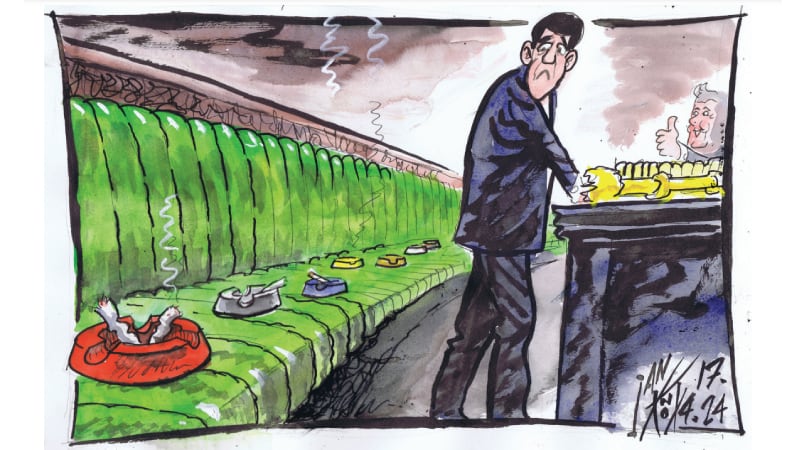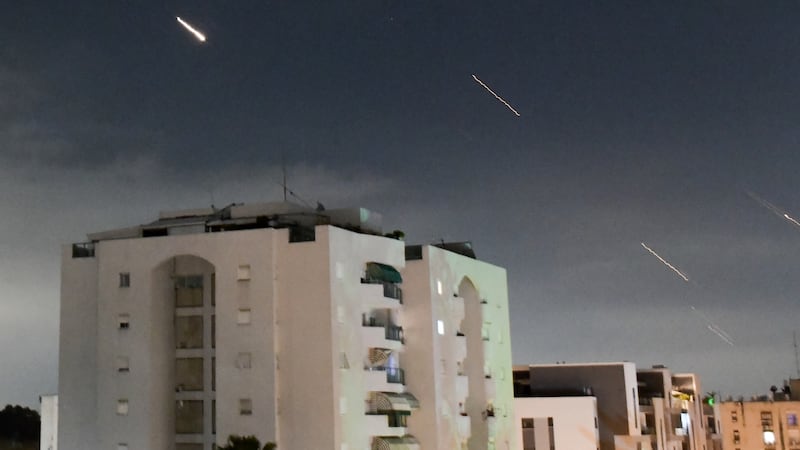I read with interest the article by Bimpe Archer – ‘One fifth admit prejudice against transgender people’ – (June 15). I would like to commend both The Irish News for running this article and the excellent research on which it is based. I had the pleasure of attending the event at which this research report was launched, where I heard the coordinators draw attention to the fact that respondents to the questions on which it is based self-identified as ‘not prejudiced’. While I have no reservations that the research itself is both excellent and greatly to be welcomed, at the launch event I remarked that this absence of prejudice is neither what I observe nor what I have frequently experienced as the mother of a transgender child. Furthermore, the research report highlights the continued harassment and prejudice experienced by trans individuals.
Among the many reasons for welcoming this research is that it highlights the experiences of the transgender constituency of our community, but I wonder, if a majority of the people involved in the research self-identified as not being prejudiced, just what their understanding of the actualities of being transgender may be. One of the core benefits of this research is that it may help to provide a baseline for better understanding of what it means to be transgender. This is a fundamentally important issue when it comes to assessing levels of prejudice. If at present 80 per cent of the population believes itself unprejudiced against transgender people, an associated danger is that we will become complacent about the current situation, in which the lived reality of being transgender in our society tells a very different story.
In my opinion, it is vital to highlight the title of the research report: The missing ‘T’. As the researchers comment, ‘the ‘T’ has often been overlooked, or more generally subsumed in popular discourse, research and services. As such the focus has primarily been on sexual identity (LGB) rather than on gender identity (T) and thus not reflective of transgender individuals’. The report suggests that ‘LGBT’ organisations have become more aware of and ready to highlight the concerns of the ‘T’ constituency. However, the report also highlights the complexity of the issues relevant to the nature of transgender identity, refers to the need to come to better understandings of ‘more fluid and non-binary identities’ and draws attention to the need for greater ‘collaboration with the trans community’ (a comment that rather overlooks the fact that trans individuals may not identify as members of a separate and distinctive ‘community’ but rather as a constituency within society as a whole). Taking this into account, and while in no way wishing to question the research and the resulting report, the individual spokesperson quoted in the article or the organisation he represents, I permitted myself a wry smile that the spokesperson quoted in your report represents a ‘LGBT support organisation’, rather than one that emphasises issues of trans and intersex (ie gender) identity.
That said, I also welcome Mr Boyd’s endorsement of the need for additional research and for greater understanding of ‘trans issues’ and look forward to this continuing to be represented in high quality research such as the Northern Ireland Life and Times Survey
LINDA BALLARD
Bangor, Co Down
Human dignity and human rights defining part of Christian message
Danny Treacy (June 27) must surely know that Christianity is defined by the Apostle’s Creed or Nicene Creed. Christians embrace a multitude of perspectives on the secondary issue of the ‘Doctrine of Creation’ they embrace. This vast spectrum ranges from Young Earth Creationism (YEC) to Theistic Evolution (TE) to Intelligent Design (ID). Stories of the Old Testament are sometimes portrayed pictorially on ancient Celtic Crosses, but those stories never eclipse the main message of the Cross itself. God valued people so much that He sent His Son to die on the Cross for us. Human dignity and human rights are a defining part of the Christian message.
Veni, Vide, Vici (I came, I saw, I conquered) is attributed to Julius Caesar, who was referring to his conquest of southern Britain (55-54 BCE). Regarding human rights abuses the pattern may be changed to Vide, Veni, Vici. People need to see the abuse, come to oppose it, and a society finally has to conquer the problem. Visionaries like the late Civil Right activist Ivan Cooper may struggle initially to convince others of a problem. Their campaign eventually develops positive momentum and a society finally conquers the problem exposed.
Danny Treacy writes: ‘There is an obligation on those who are guided by reason to ensure that the hard won evidence of science is not eroded by ignorance’. I suspect a host of pro-life groups might agree wholeheartedly with these sentiments.
A current international pro-life project called ‘babychris.org’ seeks to educate the public using science images.
Mainstream Irish Churches might wish to follow the example of a Scottish Church publication and use this image to oppose unrestricted abortion.
THOMAS HARDY
Belfast BT5
Down Royal is not under threat from developers
I was delighted to read of the glowing commentary from a first time visitor to Down Royal Racecourse for our flagship Magner’s Ulster Derby day. The feedback from Sean Sheridan (June 27) couldn’t have been more positive and I am grateful to him for taking the time to write to The Irish News to share his experience and for his custom.
I would, however, wish to confirm that the historic landmark that is Down Royal Racecourse is under no threat of being turned into ‘another upmarket property development.’
This unfounded nugget found its way into the press some time ago and clearly still resonates.
It’s important to detail that since the change of operator, Down Royal has flourished; with improvements to the site being facilitated and growth in all aspects of the racecourse business.
Indeed, I look forward to completing a £625,000 upgrade to the facilities before the end of the year and welcoming customers to the ‘new look’ Down Royal racecourse. Another exciting phase in the history of this iconic venue.
EMMA MEEHAN
chief executive officer
Down Royal Racecourse
Connection with EU should not be lost
W
hen we are surrounded with news of no locally devolved government, Brexit, lack of investment in all sectors and a Tory party leadership battle that we have no say in, no wonder that there is a feeling of helplessness and doubt.
So, last week, I was delighted when we got some very good news as the EU is to invest £31.3m to improve the waters of our loughs and rivers, some of which is coming to our own Carlingford Lough.
We are so lucky to live in an area of outstanding natural beauty and to have money invested in Warrenpoint and Omeath is most welcome. It also highlights how important the EU is to us and why this connection can not be lost to us.
JIM BOYLAN
Warrenpoint, Co Down







